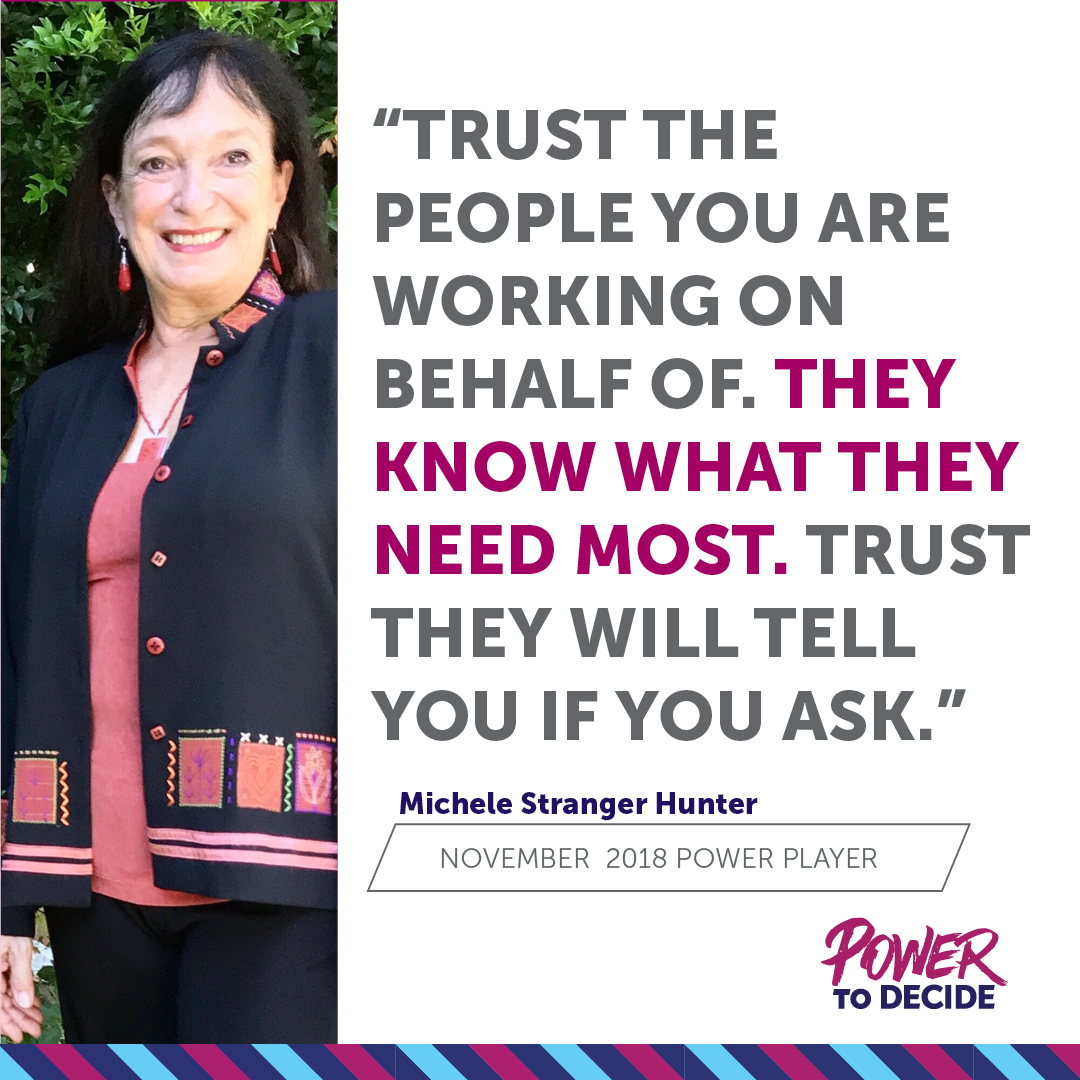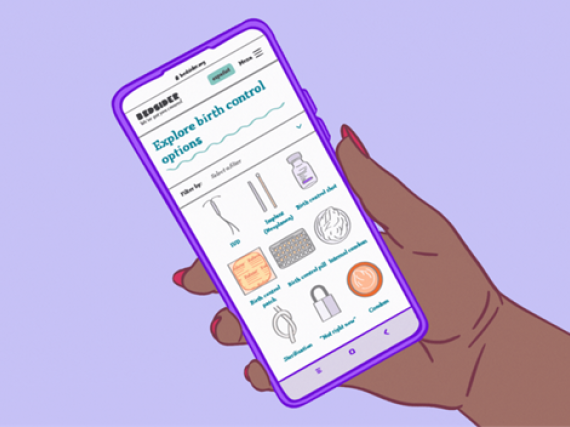November 2018 Power Player
Here at Power to Decide, we are committed to uplifting the many individuals who are on the ground doing the work that matters most. Each month we highlight an individual or organization who is championing the effort to give young people the power to decide if, when, and under what circumstances to get pregnant and have a child. Check out this month's Power Player profile.
Michele Stranger Hunter, MS, M Ed
Consultant, One Key Question, Power to Decide
Formally the Executive Director of the Oregon Foundation for Reproductive Health, Michele Stranger Hunter is now a consultant for Power to Decide. She works exclusively on our One Key Question® initiative, providing training across the country for primary care providers and others interested in supporting women’s power to make decisions around birth control, preconception health, prenatal care, and other needs.
What work have you done to ensure people have access to reproductive health information and services so they can decide if, when, and under what circumstances to get pregnant and have a child?
For over 40 years I designed and provided healthcare services to teens and young women. I also worked to improve the quality of prevention services provided to women with the least resources and their families. These experiences led to my creation of One Key Question® (OKQ), an initiative designed to equally support women who want to become pregnant and those who want to prevent pregnancy.
Integrating routine, proactive pregnancy intention screening in primary health care and public health programs, the OKQ question is: “Would you like to become pregnant in the next year?” With four possible answers: yes, unsure, ok either way, and no, women and their providers work together to decide if they need screening and information on preparing for a healthy pregnancy, contraception care, or both.
I am thrilled that OKQ is spreading across the country so quickly. Credited with changing the conversation and challenging existing norms in service delivery, in only seven years, OKQ is now used in 30 states.
How did you get started in this field? What was the driving force?
I’ve been driven by a deeply held belief that offering people a way to choose if, when, and under what circumstances to become pregnant and have a child is the single most important service we can provide.
Among the first generation of women able to get prescription birth control, I had the ability to choose. Growing up, I didn’t expect to have a choice. You got married and had children. Period. “The pill” meant that not only could I finish my education, I could have a career and an intimate relationship without risking pregnancy.
I got my first job as a 19-year-old college sophomore coordinating the first alternative education program in Massachusetts for pregnant teenagers. At that time pregnancy was considered so contagious that teenage girls were forced to leave school if they got pregnant. I was hired on the assumption that teens would comfortably relate to me, a teen myself. I went on to focus on prevention and received one of the first Title X family planning grant in the country. The grant allowed us to offer birth control supplies and services.
What advice would you give to someone looking to effect change in the field that you currently work in?
Trust the people you are working on behalf of. They know what they need most. Trust they will tell you if you ask.
Whenever possible, work together with other organizations; don’t go forward alone. It’s natural to feel like you’re competing for the same limited attention, money, and space, but inter-organizational teamwork will do more for those we all wish to help.
Don’t get discouraged by the barriers; they can always be overcome! Take a step back to get the perspective needed to create a solution on a different level.
Why should someone care about ensuring that all people regardless of who they are or where they live have access to the information and contraception they need to live their best life?
Instead I would ask, “why should someone care that America is the only industrialized country in the world where more women are dying from childbirth every year?” We know that half of these deaths are preventable.
A person’s health always matters – not just when they are or want to become pregnant. Every person with a uterus should have the reproductive health information and services they need to have true reproductive autonomy. Everyone deserves the ability to choose if, when and under what circumstance they want to become pregnant and have child, regardless of race, income, insurance, or where they live.
Is there a highlight about your work in conjunction with our organization that you’d like to share?
Power to Decide enthusiastically adopted OKQ in July 2017. Ginny Ehrlich (Power to Decide’s CEO), developed a working partnership with OKQ while I was the Executive Director of the Oregon Foundation for Reproductive Health. As soon as Ginny learned that OFRH was changing its focus, she offered Power to Decide to take on OKQ. Power to Decide didn’t commit to simply support OKQ, but also to grow the concept and program capacity to national scope and scale!
Power to Decide enabled the survival and growth of OKQ as a groundbreaking initiative. Because of that leadership decision, we are on course to create meaningful change across the country!



